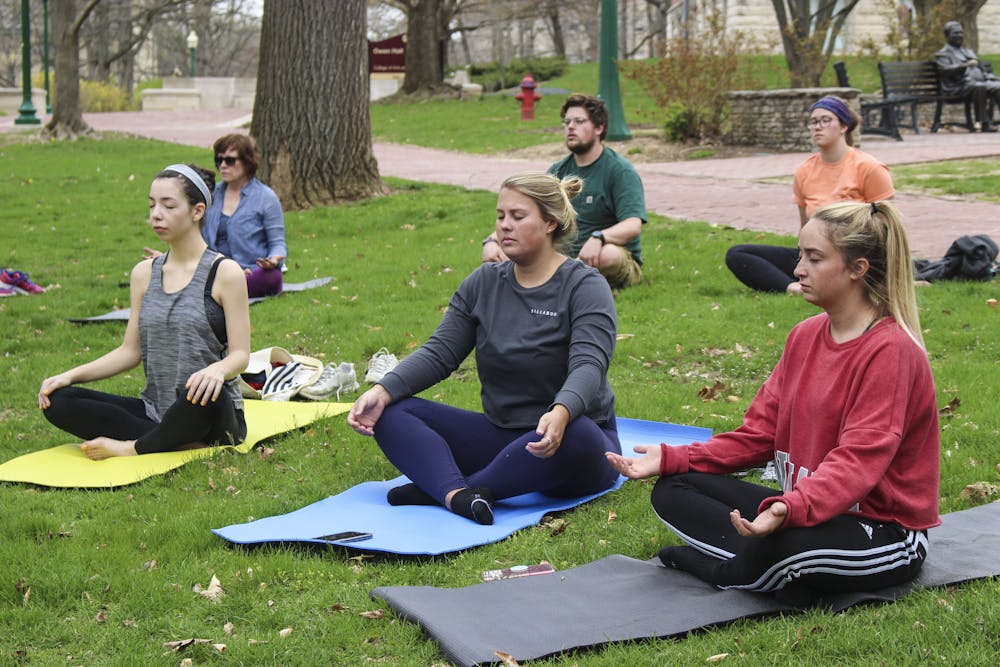As classes inch closer to the end of the semester, more students begin to sacrifice their mental health to ace their exams, but at what cost?
It has become part of the college culture to pull all-nighters, chug energy drinks and caffeine and skip other classes in order to study for exams. However, it is important to still prioritize your wellbeing because doing such unhealthy actions isn’t sustainable and won’t always guarantee getting a decent grade.
Sleep is a basic concept to understand, but many college students do not follow the guidelines to getting the sleep their body needs. According to the Journal of Adolescent Health, 68% of students pull all-nighters due to stress about school and life, and for 20% of them, this occurs once a week. However, according to the Centers for Disease Control and Prevention, when students sleep the proper amount of eight to 10 hours at night, it helps them stay focused during the day and improves their concentration and academic performance.
Now, did I think it was redundant or repetitive when a teacher would remind us to get a good night’s rest before an exam? Yes. But later, I learned how much more productive I was and the amount of information I could retain when I was not sleep deprived.
[Related: World Mental Health Day promotes resources and awareness for those facing mental health issues]
Sleeping is just one of the numerous ways we can take care of ourselves during exam season. For many, seasonal care is different for everyone, but for those who do not know where to start, an easy one is journaling.
According to a Harvard Business School study, daily journaling increased academic performance by nearly 25%.
Journaling, especially during exam season, is usually my go-to to relieve stress. When I write all my thoughts onto paper, it almost feels like the stress is exiting from my brain and onto the paper. I can feel my brain finally be able to breathe and think of something else besides how to solve a finite problem or recall the theories of development.
It does take time to journal. For those who are always in a time crunch, I recommend The Five Minute Journal, which provides guided exercises to “enhance” oneself. It is loved by many because it shifts focus onto one’s goals and calms the mind by reflecting on the day.
There are even apps to help you maintain your seasonal care during exam season. If journaling in a notebook with a pen is not your thing, Day One Journal is available for download on iPhones, Androids and Macs with various journaling prompts to choose from.
[Related: OPINION: You need to learn how to be alone with yourself]
Another form of seasonal care is by physically working the stress out. Mayo Clinic said exercising releases the feel-good endorphins, which reduces the symptoms of depression and anxiety. It can also help you gain confidence to meet your goals, giving you the confidence to study and pass your exams.
The Student Recreational Sports Center provides all the workout spaces and equipment you need. The center is open from 6 a.m. to 11 p.m. Monday through Thursday. Their weekend hours are 6 a.m. to 9 p.m. on Friday, 8 a.m. to 9 p.m. on Saturday and 8.am. to 11 p.m. on Sunday.
The SRSC also hosts different group exercises every day of the week. One of my favorite classes to attend is yoga. The American Osteopathic Association said it can relieve chronic stress, relax the mind and sharpen concentration.
So, the next time you are thinking about pulling an all-nighter or staying at the Wells Library all day to study for an exam, consider sleeping, journaling, exercising or doing yoga instead. This will not only maintain your mental health, but it will maximize your abilities to be productive and retain the information you study.
Kathleen Tran (she/her) is a freshman studying journalism and a minor in psychology.




